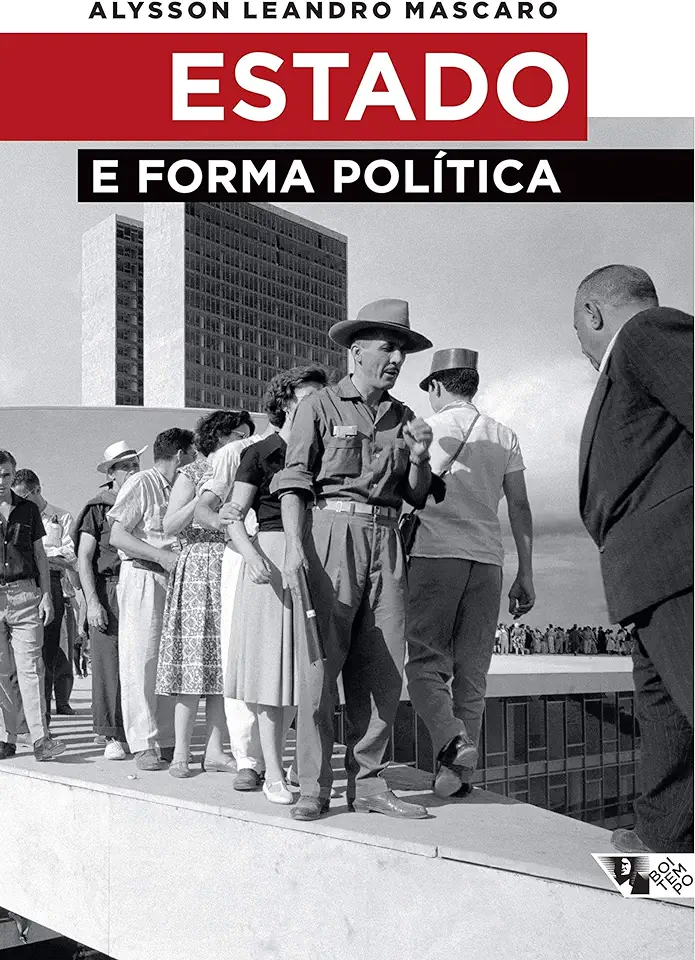
State and Political Form - Alysson Leandro Mascaro
State and Political Form: A Marxist Theory of the State
Introduction
In his book "State and Political Form: A Marxist Theory of the State," Alysson Leandro Mascaro offers a comprehensive and nuanced analysis of the state from a Marxist perspective. Drawing on a wide range of theoretical and empirical sources, Mascaro argues that the state is not a neutral or autonomous institution, but rather a product of class struggle and a means of class domination.
The State as a Product of Class Struggle
Mascaro begins by arguing that the state is not a natural or eternal phenomenon, but rather a product of specific historical conditions. He traces the origins of the state to the emergence of class society, arguing that the state arises as a means for the ruling class to maintain its power and control over the exploited class.
Mascaro's analysis of the state as a product of class struggle is based on a number of key insights. First, he argues that the state is not simply a collection of individuals or institutions, but rather a complex set of social relations that are structured by class power. Second, he argues that the state is not a neutral arbiter of social conflict, but rather an active participant in class struggle. Third, he argues that the state is not a static entity, but rather a dynamic institution that is constantly evolving and adapting to changing conditions.
The State as a Means of Class Domination
Mascaro goes on to argue that the state is not only a product of class struggle, but also a means of class domination. He argues that the state plays a crucial role in maintaining the power of the ruling class and preventing the exploited class from challenging the existing social order.
Mascaro's analysis of the state as a means of class domination is based on a number of key insights. First, he argues that the state has a monopoly on the legitimate use of force, which it uses to maintain order and suppress dissent. Second, he argues that the state controls the means of production and distribution, which it uses to extract surplus value from the working class. Third, he argues that the state controls the ideological apparatus, which it uses to shape public opinion and legitimize the existing social order.
The State and the Political Form
Mascaro concludes by arguing that the state is not a fixed or unchanging entity, but rather a dynamic institution that is constantly evolving and adapting to changing conditions. He argues that the state takes on different forms in different societies, depending on the specific class relations and historical conditions that exist in those societies.
Mascaro's analysis of the state and the political form is a valuable contribution to Marxist theory. It provides a comprehensive and nuanced understanding of the state, and it offers a powerful critique of the liberal and pluralist theories of the state. Mascaro's work is essential reading for anyone interested in understanding the role of the state in class society.
Why You Should Read This Book
"State and Political Form" is a must-read for anyone interested in understanding the state from a Marxist perspective. Mascaro's analysis is rigorous, insightful, and persuasive, and it offers a valuable contribution to Marxist theory. This book is essential reading for anyone interested in understanding the role of the state in class society.
Here are a few reasons why you should read "State and Political Form":
- It provides a comprehensive and nuanced analysis of the state from a Marxist perspective.
- It draws on a wide range of theoretical and empirical sources.
- It offers a powerful critique of the liberal and pluralist theories of the state.
- It is essential reading for anyone interested in understanding the role of the state in class society.
If you are interested in learning more about the state, then I highly recommend reading "State and Political Form" by Alysson Leandro Mascaro.
Enjoyed the summary? Discover all the details and take your reading to the next level — [click here to view the book on Amazon!]